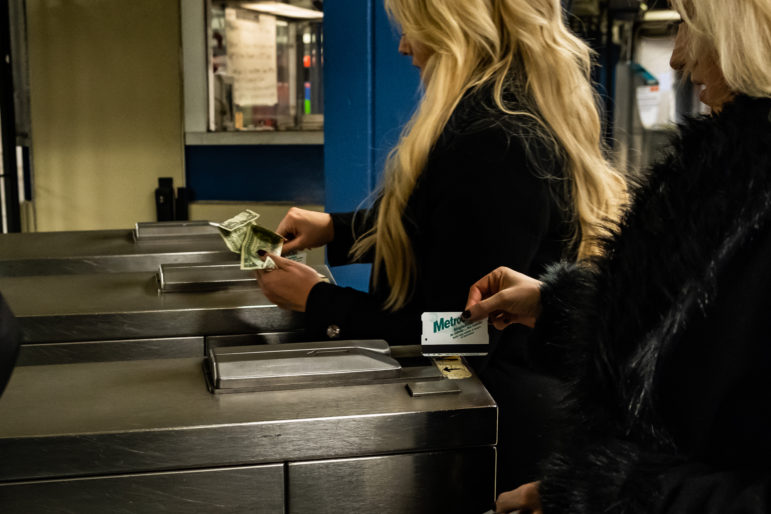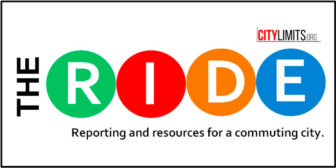
Adi Talwar
Riders enter the subway at 59th Street. Fares for monthly and weekly MetroCards are slated to go up in April.
The MTA board voted Wednesday to increase the cost of weekly and monthly MetroCards and eliminate the MetroCard bonus, but to retain the base fare for subway and bus rides—something disability rights advocates have been fighting for, arguing that hiking the base fare would unfairly impact Access-a-Ride users.
Board members approved a plan, to go into effect April 21, that will rise the cost of seven-day MetroCards from $32 to $33 and 30-day cards from $121 to $127, while eliminating the 5 percent bonus currently granted to MetroCard purchases $5.50 and over. It will also raise the cost of an express bus ride to $6.75 and eliminate the use of coins on express buses.
But the cost of a single-ride ticket will remain at $3, and the base fare will stay at $2.75. The vote avoided an alternative plan that would have hiked the base fare to $3, something disabled riders and advocates argued would unevenly burden Access-a-Ride users,who aren’t eligible for MetroCard bonuses and have to pay the full base fare in cash.
The MTA says the fare hikes are needed to stave off service cuts and help it plug a nearly $500 million projected operating deficit next year. “The MTA is under significant financial distress,” Fernando Ferrer, the board’s acting chairman, said. “It’s painful in some areas, but it is fair, and it keeps us afloat financially.”
Get the best of City Limits news in your inbox.
Select any of our free weekly newsletters and stay informed on the latest policy-focused, independent news.
But the fare increases still aren’t enough to for the MTA to fully close its operating deficit or fund its capital program, Ferrer added, saying more dramatic change is needed to “fundamentally reform the MTA.” He pointed to efforts on behalf of the agency to cut waste and spending, including a hiring freeze on nonessential employees, and to set new performance targets to make sure bus and subway service is improving.
“We are doing our part. We are serious about that,” he said.
The vote comes a day after Gov. Andrew Cuomo and Mayor Bill de Blasio teamed up to release their own 10-point plan to reform and reorganize the MTA,which includes drumming up new transit revenue by passing a congestion pricing plan, and allocating a percentage of a new internet sales tax and an expected tax on legalized marijuana.
Subway costs have been hiked more than a dozen times since the transit system debuted more than a century ago, and this year’s fare increase is the sixth faced by riders since 2009.








